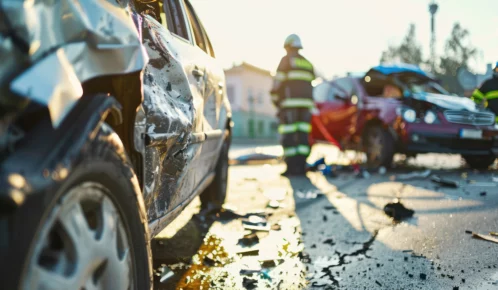Last weekend much of the United States, “sprang forward” as we moved our clocks ahead one hour. While daylight savings time has long been considered a modern rite of passage for the changing seasons, some experts point out that the time change puts our health at risk and increases the risk of accidents and injuries – particularly auto accidents and heart attacks.

According to Slate.com, the hazards and health risks associated with daylight savings time are worse when we spring forward than when we fall back since it results in a lost hour of sleep. Since the sun rises later, it can be more difficult to wake up in the morning because we use light to set our internal clocks.
In fact, as this article points out, fatal car crashes spike the Monday after DST starts. Due to the loss of one hour of sleep, groggy and tired drivers are at the wheel, thereby upping the risk of auto accidents.
Not only are there more auto accidents the Monday after daylight savings time, but workplace accidents may also be more frequent and severe after the spring daylight savings adjustment, according to a study of miners published in the Journal of Applied Psychology in 2009.
Researchers have also found that there is a spike in heart attacks during the first week of DST because the loss of an hour of sleep increases stress and reduces the amount of overnight recovery time. (Conversely, there is a decrease in heart attacks in the fall when we move our clocks back and gain an extra hour of sleep.)
The negative impact of changing the clocks is so pronounced that some health experts promote abolishing the time changes all together. Research has found that having DST all year round could save up to 366 lives in traffic fatalities, according to a 2004 study in the journal Accident Analysis & Prevention.
Proponents of the time change site energy savings and overall safety since, after the initial spike in auto accidents during the days immediately following the switch to DST, there are fewer fatal car crashes throughout the entirety of DST due to the fact that is more likely to be light out when the majority of people are on the road, commuting home from work or school.
Regardless of the pros and cons of daylight savings time, the time change seems likely to stick for the time being. As such, you can help minimize the negative impact of the time change by going to bed earlier in the days leading up to the time change and avoiding operating a vehicle if you are groggy or sleep deprived.
The Chicago auto accident law firm of Ankin Law Offices, LLC is dedicated to keeping the roads safe for motorists, passengers, and pedestrians. If you have been injured in an auto accident, we are prepared to pursue all possible causes of action to get you the compensation that you deserve. Do not hesitate to contact our office at (312) 600-0000 to schedule a free consultation with one of our Chicago car accident lawyers.



